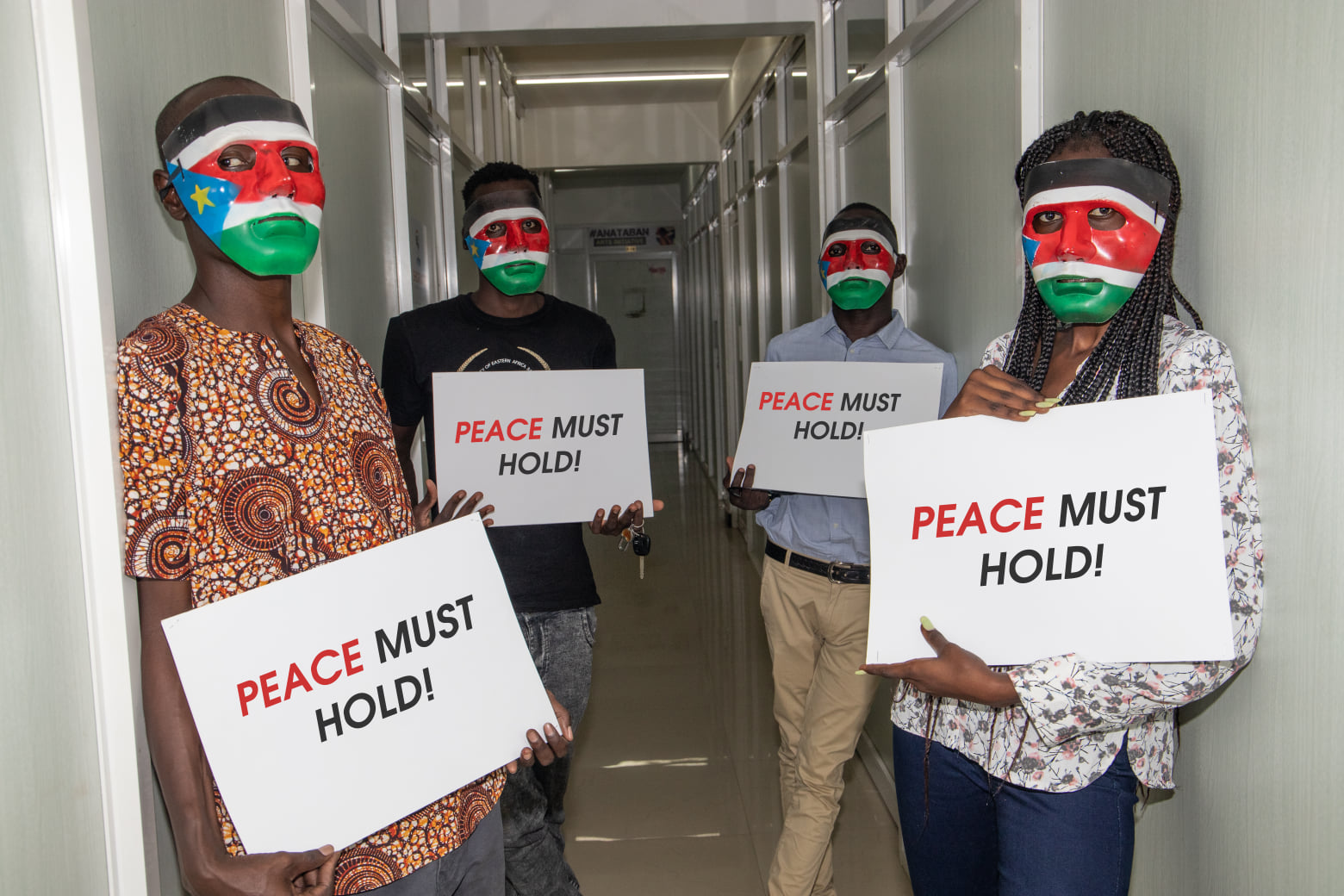Ana Taban, which means ‘I am Tired’ in Arabic, was established in 2016 in Nairobi, Kenya out of frustration of South Sudanese artists with several issues related to the civil war in the country. This was after another conflict broke out at the Presidential Palace in Juba a few months after the signing of a peace deal. The group members lost a lot to the conflict, including colleagues, friends, family members, and homes, as some were displaced. They were weary of going through the same things again.
“We questioned why we were putting ourselves through this situation again. We also realised we had a certain influence as artists, and thought, how do we make good use of our influence to help our country?”
Jacob Bul, Co-Founder and Media Coordinator of Ana Taban Tweet
The founders later launched the initiative in Juba to use different forms of art that resonate with South Sudanese to create awareness on issues related to conflict and human rights. Ana Taban was involved in drafting the current peace agreement and is quite active in disseminating the contents of the document.
Ana Taban has faced various challenges since its inception. The members of the organisation are subjected to smear campaigns, arrests while peacefully exercising their right to protest, harassment, and intimidation by security forces, including cancellation of some of their events. The smear campaigns led to distrust of the organisation by state authorities, which frustrated registration in South Sudan.
“When we launched Ana Taban in Nairobi, an article was written spreading misinformation on our group. The article alleged that it was a youth movement based in Nairobi, Kenya that was tired of the South Sudanese government, and supported by the Ethiopian government. However, this was not true,”
Jacob Bul Tweet
Furthermore, like most human rights organisations, the COVID-19 pandemic has impacted their work as they have been forced to cancel some of their activities. Moreover, there has been a general shrinking of civic space in the government’s fight against COVID-19, which has further made Ana Taban’s work difficult. “We have been forced to cancel Hagana Festival, one of the biggest festivals in Juba,” says Jacob Bul, “The festival encourages people of South Sudan to take ownership of their country and hold the government accountable.”
Jacob believes that solidarity is vital in promoting and protecting human rights. Solidarity across the region can amplify voices of groups like Ana Taban and other human rights defenders in South Sudan.
“If anything happens to somebody in South Sudan, colleagues in other countries like Uganda and Kenya can be amplify their voice and get together to fight for that individual. Solidarity is one major thing that I wish we all have as people involved in the fight for human rights within the region,”
Jacob Bul Tweet
What keeps the organisation going despite all the challenges they face is the innate sense of responsibility to fight for a just society where the human rights of South Sudanese are upheld and respected. The organisation continues to grow, and more youth are inspired to join the cause.
“The fight for human rights and attaining a just society is a fight that will not end. The generation before us fought for the independence of this country, and we attained it. It falls on the current generation to ask themselves how we contribute to nation-building?”
Jacob Bul Tweet

